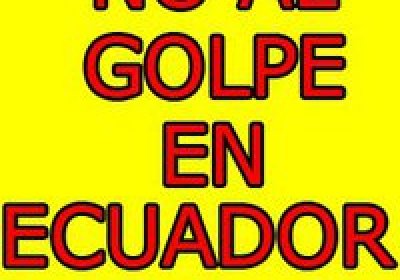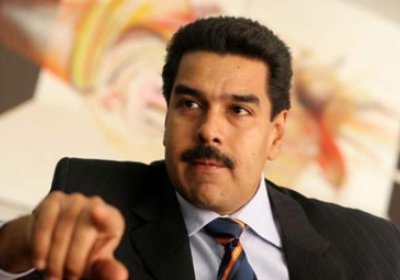In the aftermath of a failed coup attempt on September 30, left-wing Ecuadorian President Rafael Correa has vowed to deepen his “citizen’s revolution” in the small Andean country.
After the coup attempt by sections of the police and armed forces failed amid pro-government protests, Correa’s approval rate has surged to 75% in some polls.
In response, Correa, said his government had not done enough to implement its pro-people program and would radicalise its project to build a “socialism of the 21st century”.
Ecuador
The attempted coup d’etat in Ecuador on September 30 against the left-wing government of Rafael Correa was defeated by loyal troops and the mass mobilisation of Correa’s supporters. The event underscores the turbulent history of the small Andean nation.
It also exposes some of the weaknesses of Ecuador’s revolutionary movement, which is part of a broader Latin American movement against US domination and for regional unity and social justice.
On September 30, Ecuador descended into chaos as a protest by sections of the police force and army turned into a potentially bloody coup against left-wing President Rafael Correa.
At about 8am, sections of the Ecuadorian Armed Forces and the national police went on strike, occupying police stations and barracks in the capital Quito, in Guayaquil and in at least four other cities. They set up road blocks with burning tyres, cutting off access to the capital.
Mérida, September 30th 2010 (Venezuelanalysis.com) – As a coup attempt takes place in Ecuador, Venezuela and regional organisations of Latin America have come out in solidarity with Ecuador, and Venezuelan President Hugo Chavez called on the people and military of Ecuador to defend President Rafael Correa and their country’s democracy.
Ecuador is a close ally of Venezuela, and a fellow member of the progressive Bolivarian Alliance of the People of Our America (ALBA).
A coup attempt is underway against the government of President Rafael Correa. On Thursday morning, groups of police forces rebelled and took over key strategic sites in Quito, Ecuador’s capital.
On August 3, the Ecuadorian government signed a landmark deal to prevent drilling for oil in the ecologically unique Ishpingo-Tambococha-Tiputini areas of the Yasuni National Park (Yasuni-ITT).
The agreement, signed by the government of left-wing President Rafael Correa and the United Nations Development Program (UNDP), guarantees that the estimated 900 million barrels of oil that lie beneath the pristine Amazonian region will remain untouched, as will the forest above.
Venezuelan President Hugo Chavez took a giant symbolic leap in the direction of Latin American independence on July 6 when Venezuela and Ecuador conducted the first bilateral trade deal between two countries using a new trading currency, the Sucre, instead of the US dollar.
The Unitary System of Regional Compensation (Sucre) is the currency the adopted last year by the Bolivarian Alliance of the Americas (ALBA) regional bloc to allow member states to trade without using the US dollar.
On July 8, the government of Ecuador’s left-wing President Rafael Correa took over three television stations and nearly 200 private companies, prompting the resignation of the finance minister.
According to a May 7 Prensa Latina report, the Ecuadorian government has denounced Colombia following the release of evidence that the Colombian military had executed four prisoners as part of its infamous March 1 assault on a camp of the Revolutionary Armed Forces of Colombia (FARC) that was within Ecuadorian territory.
Ecuadors President Rafael Correa shook up the establishment in early April after forcing the resignation of defence minister Wellington Sandoval, the military Chiefs of Staff, and the countries police chief amid accusations that the military and intelligence organisations were infiltrated by, and under the control of, the CIA.
According to an April 3 Reuters report, an independent environmental expert told a court in Ecuador that US oil giant Chevron should pay US$7 billion to $16 billion in compensation for environmental damage in the country. The lawsuit, which peasants
March 31 Reuters article reported that Ecuador has sued Colombia in international court over drug crop fumigation along its frontier. "Ecuador asks the court to declare Colombia's air fumigation a violation of Ecuador's sovereignty", foreign minister
- Previous page
- Page 14
- Next page





